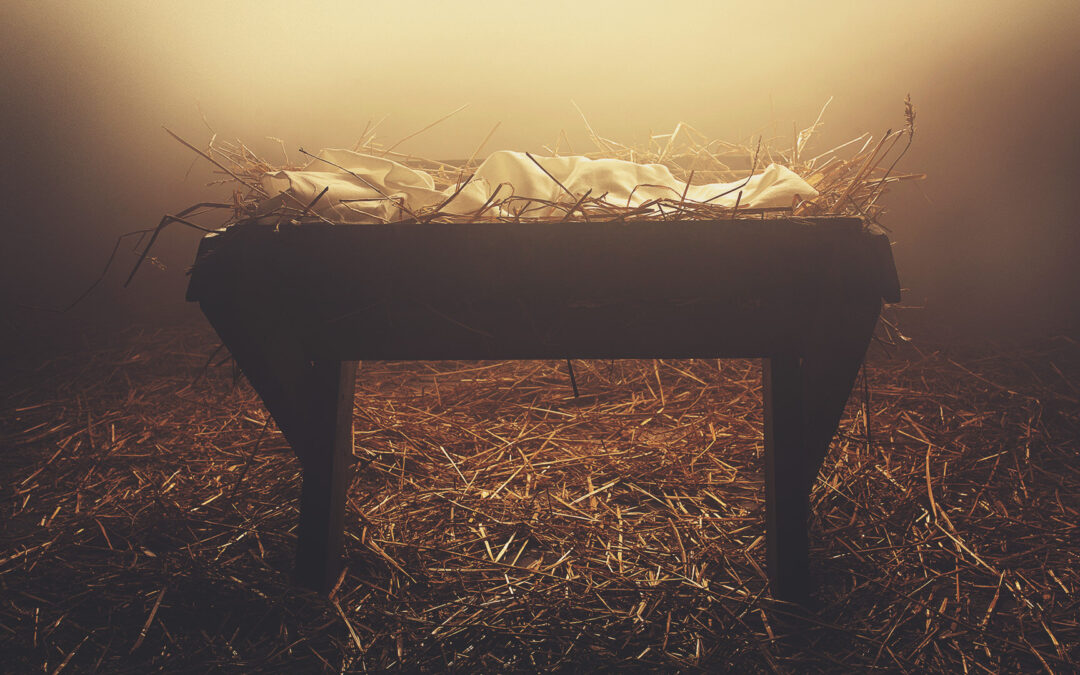Dr. Jojo Varakukalayil CST
Christmas is all about God becoming human as revealed in the Bible “the Word became flesh and dwelt among us” (Jh1/14)!
Incarnation – the mystery of mysteries – is the mystery of Christian life and faith. A God who becomes flesh is the one who is made felt to everyone. Incarnation of God would thus mean that he becomes touchable. God is becoming one like us in his compassionate being for the other. This is the Christian thinking of God, not an abstract God, or transcendent God, but a God who is transcendent through the body. It is not thinking of God in an abstract way in categories or intentional. God is accessible beyond the self-interest. What we grasp, the intentional, becomes the tangible. The embodiment of God is the way of being-with-beings. God moves towards the other despite self-interest. This could be the meaning of “being born in the likeness of men” (Phil 2/5-11). It is the self-inflicted humiliation on the part of the Supreme Being, of descent of the Creator to the level of the creature. The compassionate ‘touchability’ of God is thus the nature of God as love for his creatures. It is through the body that God becomes transcendent. So, to say, Christianity is the mystery of revelation of God’s love to his creation in incarnation that the Jewish minds could ever hold it. The unfathomable love of God is the compelling character of God to be one like us amidst us. God is moved despite of himself towards the other. The being of God that moves beyond itself to the human.
The incarnation of God is not a particular idea of Christians by their accidental intuition, rather it is something really essential to think of God. God’s being is moved from within without self- interest. The dis-interested-ness of God is the kenosis of God becoming human. The kenotic being of God is the love of God itself (Jh 1/18), and it is the radical passivity in the Being of God, for God cannot be otherwise. Nonetheless to say that the radical passivity of God is the activity of God itself. God’s action in the world is the way of His Being. There is nothing as to be chosen by God but it simply flows from the Being of God. The true essence of God must be the one that proceeds from God’s Being, and it does not reserve for itself as self-involution, as a being that bites upon its tale, or as turned upon itself; on the other hand, it proceeds to the other. Incarnation of God is the manifestation of this mystery to the humans and it is the Christian mystery of Christmas. God remains God in incarnating. God cannot but incarnate. God cloths with flesh, embodies in a vulnerable exposure. Being in flesh as incarnate is far more different than having a material body; given this, it would imply, one can touch, feel joy or sorrow, hunger or thirst, and undergo each of these pain and penury as one’s own.
In being affected by the other and for the other God touches the real human being and the real Divine being. This makes sense of God incarnate as the human that is the mystery of Christianity. The incarnation is not just a mystery but the sensibility of God as loving, caring, and providing. Hence, Christmas is not a romantic idea but essential for our thinking of God. Angels cannot understand what it means to take body and incarnate. A story about protesting angels has the sense of it.Read the story
The human person is a being that can suffer. Precisely because one has a body, or stronger still, because one ‘is’ a body. But by means of one’s sensibility the human person is also touchable by and sensitive to the suffering of the other. Thanks to their ‘vulnerable body’ humans are bonded with each other, are attuned towards each other, are responsible for each other, and are meant to care for each other. Thanks to their so-called ‘low-life’ nature and their bodily condition, humans stand above the angels. This is truly a paradoxical situation: the lower opens up the perspective towards the higher, the humble to the sublime! Thanks to the ‘sensibility’ of our body we are vulnerable by and for the other so that we as inspired or animated – literally ‘ensouled’ – beings are ‘created’ or ‘conditioned’ to take upon ourselves the being and the fate of the other. In this sense, the incarnation is not only a religious category, but also an anthropological category of our human condition that unsettles many of our settled ways of being human resonating in the strange ways of being human in what is gloriously common in us. May browsing through ‘Theresian’ open up new avenues of revelations to you about ‘Immanuel’.
Jojo Joseph Varakukalayil CST Superior General, Little Flower Congregation (CST Fathers)



Recent Comments